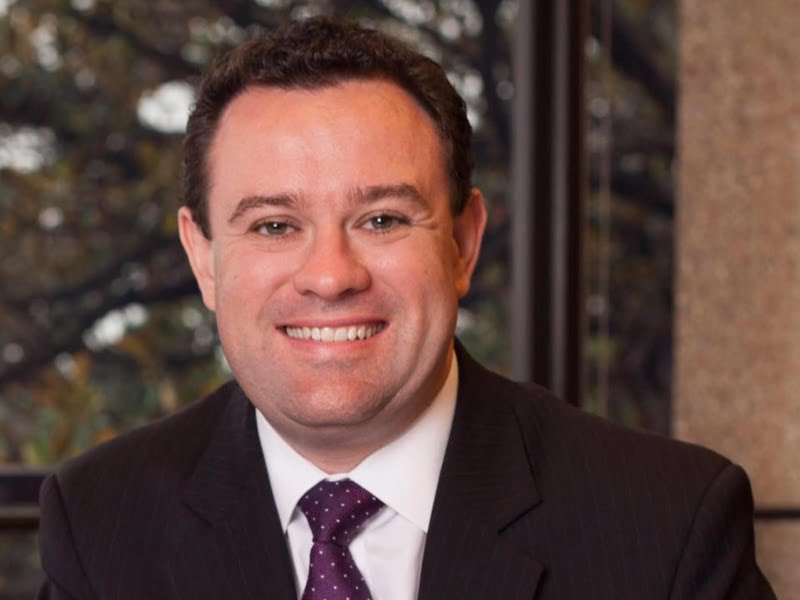Local Microsoft boss Steven Worrall kicked of his company’s big Summit event this week by talking up the need for digital transformation to be herded along by strong leaders.
Tech leaders have been prodding their customers to spend up on digital transformation to stay alive since the beginning of business computing in the 1950s – here’s looking at you IBM.
Mr Worrall, who moved over from running IBM’s Asia Pacific software business to the Microsoft gig late last year, is well versed in the transform or go down the gurgler pitch.

At a preview on Monday for Microsoft’s Summit event that runs in Sydney all this week, Mr Worrall said Australia had fallen down the rankings for competitiveness and business efficiency despite its record 26 years of growth.
According to IMD, a Swiss business school which does an annual report on national competitiveness, Australia dropped from 17th last year to 21st this year on the competitiveness ladder of 63 developed nations and in business efficiency we dropped from 17th to 27th.
The Committee for Economic Development in Australia (CEDA) had input into the IMD report and remarked after the findings came out that one of the main reasons for our competitiveness decline was not transitioning our workforce quickly enough.
“So that our dependence on industries that have brought us to this point, which obviously has been a great strength for the country, perhaps is holding us back to the extent that we’re not moving fast enough to skill the next generation to move into digital roles,” said Mr Worrall.
“Or indeed to take the skills that they have, complement them with digital capabilities and then take on new roles in the digital economy.”
Meanwhile a McKinsey report this year said digital innovation could drive about $250 billion of economic growth in Australia out to 2025.
“To put that into context, that’s about 15 per cent of our current GDP. Or over the next 8 years that could be a full one percentage point of growth of GDP if we were to tap into the high case that McKinsey had talked about,” said Mr Worrall.
How to get some of that goodness?
Mr Worrall believes the answer is strong digital leadership, skilling up the workforce and, naturally, buying more Microsoft stuff.
“There is a real opportunity here for enterprise leaders to accelerate digital transformation by leveraging rich technology ecosystems and upskilling staff to meet changing customer and society expectations,” he said in a statement.
“However, to innovate at the speed and scale that is required, the key determinant of success won’t be technology but the ability of companies to adapt both their leadership and their organisations for the digital era. Cultural transformation is the vital ingredient to any successful digital transformation,” he said.
Fortunately, Australia has been a fast adopter of new technology from offshore, if not a great producer of indigenous tech.
“For us, we are universally positive, though, about what is happening here in Australia, largely because I think we have seen Australians adopt new technology over many years,” said Mr Worrall.
“This is not something new for us. Our economy has always been an adopter of new technology.”
Mr Worrall’s remarks come at a time when Microsoft is busy getting its Azure cloud platform setup in Canberra to be available to Federal agencies as Angus Taylor, the Assistant Minister for Digital Transformation attempts to drive a truckload of transformation through Federal IT.
Microsoft is looking to spool up two Canberra cloud centres next year. The Canberra cloud will be hooked to the ICON network that interconnects agencies and Microsoft will be looking to steal a march on arch cloud rival AWS in the Federal market.
And while Australia may be a keen adopter of overseas tech, it aims to be a much smarter adopter at a Federal government level.
Mr Taylor told a gathering of the Australian Information Industry Association at the National Press Club last week that ICT procurement reform was top of mind and that rulers were being run over government tech projects.
“We have reviewed the entire ICT project estate three times. We have reviewed around 20 new projects at the pre investment stage that has saved nearly $3 billion in projected costs,” Mr Taylor said.
Do you know more? Contact James Riley via Email.

